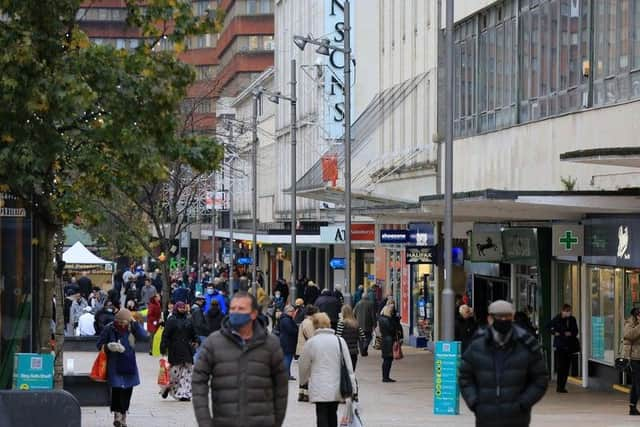What changes and what stays the same as Sheffield moves from Tier 3 to lockdown
and live on Freeview channel 276
Prime Minister Boris Johnson imposed a third national lockdown in England yesterday, where he announced strict new measures – resembling the initial shutdown in March 2020 –in an attempt to slow the spread of Covid-19.
He addressed the nation on television on Monday (January 4) warning them to stay at home except for essential journeys, following the news earlier that day that First Minister Nicola Sturgeon had imposed a Scottish lockdown for the rest of January.
Advertisement
Hide AdAdvertisement
Hide AdNon-essential retail such as clothing shops, hairdressers and nail bars were previously allowed to stay open in Sheffield and the whole of South Yorkshire under the Tier Three level restrictions.


But now people have been told to only leave their house for limited reasons, forcing all non-essential retail and personal care businesses to close, alongside outdoor gyms, golf courses, tennis courts and a temporary ban on team games across the country.
Hospitality businesses in Sheffield will continue to operate as takeaway or delivery services, as Tier Three rules stipulated, however people will not be able to add alcohol to any orders they collect.
Supermarkets, pharmacies, off-licenses, builders’ merchants and garden centres will remain open – while cinemas, skating rinks and bowling alleys will stay shut.
Advertisement
Hide AdAdvertisement
Hide AdMr Johnson told the nation that residents can leave their homes for shopping for necessities such as food and medicine, but only as infrequently as possible.
They can also do this if they are caring for somebody, are a volunteer, or to provide essentials for people who are self-isolating.
People are still allowed to exercise locally but this is preferably limited to once a day with members of your household or support bubble or one other person from another household – such as going for a walk or run.
It is still permitted to leave the house for medical reasons and other essential tasks such as being with someone who is giving birth, or to visit someone who is dying.
Advertisement
Hide AdAdvertisement
Hide AdBoris Johnson also reiterated that people should only go to work if it is impossible to work from home and cleaners and trades people will still be able to work in people’s homes.
All schools will close and children will be taught by teachers remotely, except for the children of key workers or vulnerable students.
But early years settings such as nurseries and childminders can remain open and existing childcare bubbles will stay in place.
University students are not allowed to return to campus and should study from their current residence – in person teaching is only permitted for a small number of critical courses such as medicine, dentistry, teacher training, veterinary science and social work.
Advertisement
Hide AdAdvertisement
Hide AdChurches can stay open for communal worship but weddings are only allowed in exceptional circumstances.
The lockdown which has come into force immediately is expected to stay in place until the middle of February and police will have enforcement powers.
Shutdown measures will be enshrined in law and police can issue a Fixed Penalty Notice of £200 for the first offence, doubling for further offences up to a maximum of £6,400.